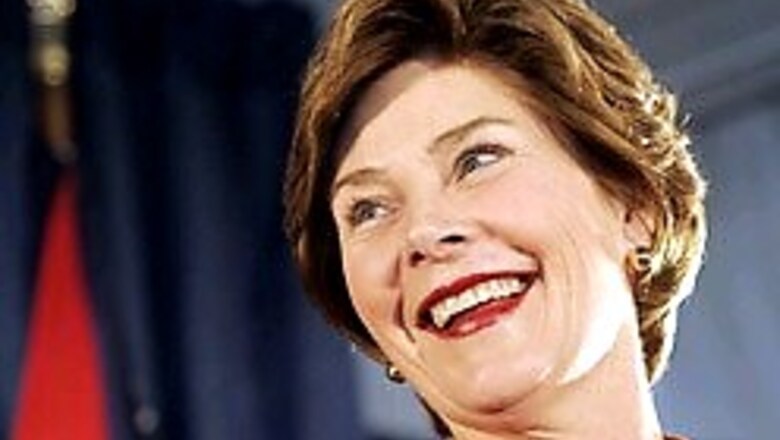
views
Washington: Former White House Chief of Staff Andrew Card twice sought to persuade President Bush to fire Defense Secretary Donald Rumsfeld, the second time with the support of first lady Laura Bush, Bob Woodward writes in a new book on the Bush administration's Iraq war policy.
Card on Friday did not dispute that he had talked about a Rumsfeld resignation with the president but said it was his job to discuss a wide range of possible replacements, including his own. He denied talking to Laura Bush about the subject.
The Washington Post assistant managing editor's third book on the Bush administration, State of Denial, comes out next week. Some details have already appeared, however, including on the newspaper's website.
White House spokesman Tony Snow shrugged off the book as "cotton candy. It kind of melts on contact."
"We have read this book before. This tends to repeat what we have seen in a number of other books that have been out this year where people are ventilating old disputes over troop levels," Snow said Friday.
Woodward writes that Card sought and failed in November 2004, right after Bush won a second term, and again a year later, to persuade the president to fire Rumsfeld.
In an interview with The Associated Press, Card rejected any suggestion that he led a campaign to dump Rumsfeld but said he did discuss with the president Rumsfeld's role in Bush's second term.
After re-election, he and the president "talked about every Cabinet post and senior White House position," Card said.
He said he kept a notebook listing all top jobs and possible replacements. "It's the chief of staff's job to give the lay of the land, have the president consider a lot of different options," Card said.
As to whether the first lady had any particular views about Rumsfeld, "Laura Bush and I never discussed it," Card said.
Dorrance Smith, the assistant secretary of defense for public affairs, responded to a request for comment by referring a reporter to Card's comments on the matter.
PAGE_BREAK
As for the war, Woodward writes that White House and Pentagon officials voiced concern about the conduct of the fighting in reports and internal memos and that a secret intelligence report circulated last May predicted violence would continue for the rest of 2006 and increase in 2007.
At the same time, Bush, Rumsfeld and other senior officials insisted publicly the situation was going well, Woodward writes, according to the Post.
Snow insisted that the president "was not, in fact, painting a rose-colored picture. He has been saying that it's a tough war, it's a long war, it's a war that's going to outlive his presidency."
The White House spokesman did confirm one detail in Woodward's forthcoming book – that Henry Kissinger has been advising Bush about Iraq.
"The president has a lot of people in, and he listens to them. And Dr Kissinger was one of them," Snow said. He said Bush listens to Kissinger's advice even when the two men disagree.
In an interview scheduled to air Sunday night on CBS-TV's "60 Minutes," Woodward says Kissinger, who served in the Nixon and Ford administrations, has been telling Bush and Vice President Dick Cheney that in Iraq, "victory is the only meaningful exit strategy."
As for accounts in the book of administration infighting, Snow said, "Quite often in a book like this you are going to see people who are on the losing side of arguments be especially outspoken about their opinions that nobody listened to."
"As a matter of fact, the average Washington memoir ought to be subtitled 'If only they listened to me,'" said the White House spokesman.



















Comments
0 comment